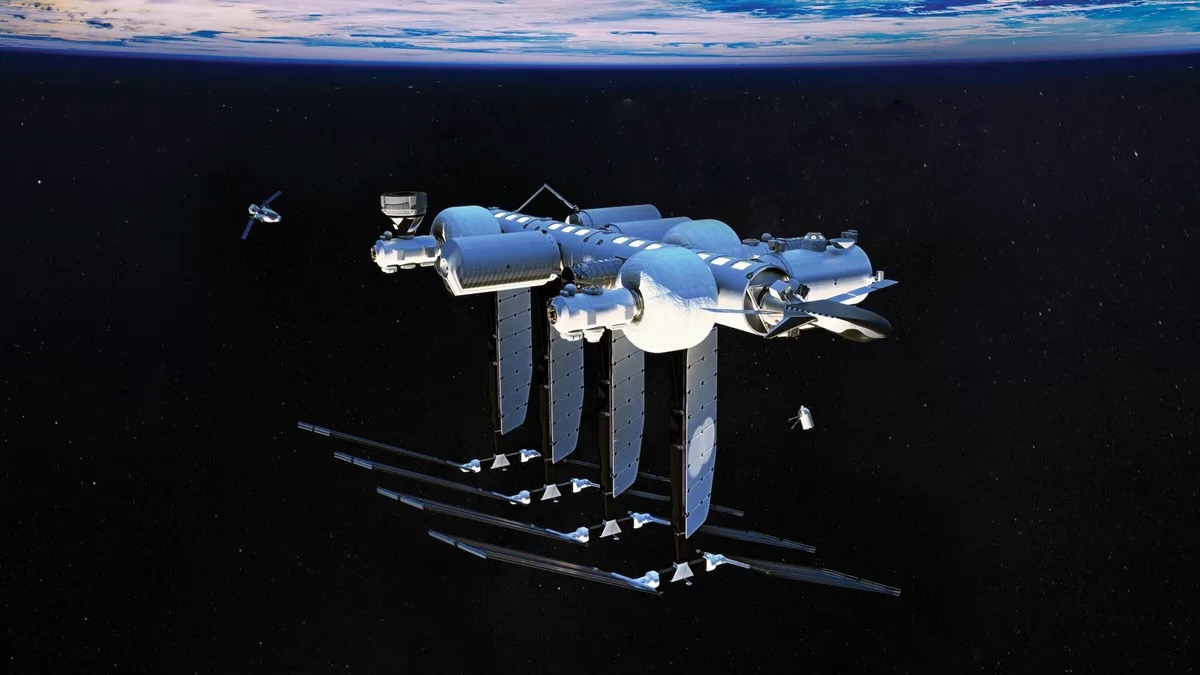White House lays out possible rules for private space stations and more

The White House has laid out a possible regulatory framework for humanity's spaceflight future.
On Wednesday (Nov. 15), the National Space Council (NSC) released a draft bill that assigns oversight responsibility for novel space activities and infrastructure, including private space stations, off-Earth manufacturing and space junk removal.
That responsibility would be split between the Department of Transportation (DOT) and the Department of Commerce (DOC).
"U.S. industry leads the world in bringing the benefits of space to Earth," Deputy Secretary of Commerce Don Graves said in an emailed statement from the White House. "This legislation ensures that our government will build a regulatory environment that supports commercial expansion to benefit all Americans."
Related: Private space station: How Axiom Space plans to build its orbital outpost
Under the United States' existing framework, the DOC regulates private, remote-sensing satellite systems while the DOT handles commercial launches and reentries, including the safety of humans on such flights (via the Federal Aviation Administration). The Federal Communications Commission, meanwhile, manages satellites' use of the electromagnetic spectrum.
But there's no clear "mission authorization" for many upcoming commercial activities in the final frontier. The proposed bill from the NSC — a policy-shaping body chaired by U.S. Vice President Kamala Harris — seeks to fill in the gaps.
Breaking space news, the latest updates on rocket launches, skywatching events and more!
For example, the new rules would extend the DOT's safety charge to people in Earth orbit as well as those on (or around) the moon and other celestial bodies. The DOT would also be responsible for licensing in-space transportation efforts, such as missions that deliver goods to the lunar surface.
The DOC would have authority over "all novel space activities that are not human-rated or assigned to DOT," according to the emailed statement. "Examples include in-space assembly and manufacturing missions, and satellites responsible for removing space debris."
The DOC would also have the authority to coordinate space traffic and provide warnings that help prevent off-Earth collisions.
The NSC's proposal isn't the only possible regulatory outline for future space activities. The U.S. House of Representatives' Science, Space and Technology Committee is working on its own legislation, known as the Commercial Space Act, noted Marcia Smith of Space Policy Online.
"Among other things, it puts the Department of Commerce (DOC) in charge of regulating new types of space activities not already regulated by other agencies, referred to as mission authorization," Smith wrote on Wednesday.

Michael Wall is a Senior Space Writer with Space.com and joined the team in 2010. He primarily covers exoplanets, spaceflight and military space, but has been known to dabble in the space art beat. His book about the search for alien life, "Out There," was published on Nov. 13, 2018. Before becoming a science writer, Michael worked as a herpetologist and wildlife biologist. He has a Ph.D. in evolutionary biology from the University of Sydney, Australia, a bachelor's degree from the University of Arizona, and a graduate certificate in science writing from the University of California, Santa Cruz. To find out what his latest project is, you can follow Michael on Twitter.
